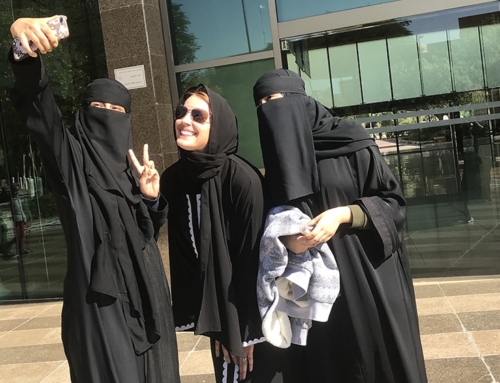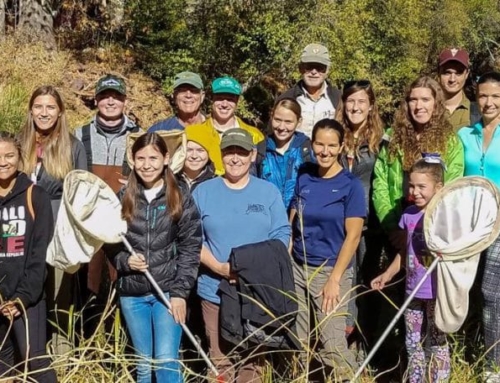Brene Brown describes a leader this way: anyone who holds themselves accountable for finding potential in other people and processes. She believes it applies to everyone, no matter their title or
status. Any of us can be a leader.
As we begin a new decade, I am challenging myself to be a stronger leader, to find new ways to embolden my team, partners, stakeholders and community.
I have worked for leaders I wanted to emulate, and leaders who inadvertently taught me how not to lead. Whether hanging on the back of a garbage truck slinging trash cans (my favorite, albeit dirtiest, early job), or working at one of Europe’s largest hostels in Interlaken, Switzerland, I learned leadership lessons that today help me lead one of America’s most elite Destination Management Organizations in Sedona, Arizona – the most beautiful place on Earth.
I believe I have an important job, a key principle of leadership. Leaders are convinced their work is making a difference.
A passionate leader creates an magnetic environment where people want to work – often because they can excel. A gifted leader makes people comfortable with being uncomfortable. Since constant improvement is the norm, discussing shortcomings and strengthening weak points comes with the territory. A leader sets a tone that is goal-oriented, welcoming and supportive. Everyone is accountable, and everyone is supported.
Gifted leaders are always learning and keep their eyes on the horizon. They anticipate change, educate themselves to become change agents, and lead their team into the future. They seek personal and professional growth because they know the power of their example to others. They also know customers value leaders who demonstrate not only integrity and results but also cutting-edge industry expertise.
Extraordinary leaders value different perspectives. They recognize when they need assistance and are unafraid to hire outside experts. A wise leader also maintains a network of trusted advisors. A leader’s “personal board of directors” represents a reserve of talent, wisdom and experience no leader can accrue on their own.
Exceptional leaders are models of respect. Respecting themselves and their position, they treat others the same way, showing patience, courtesy, attentive listening and trust. They understand their words and actions become models for the entire organization, so they treat people as they expect others to be treated. They are slow to anger, quick to praise. They share success – making every accomplishment a team win – and recognize stellar performers with sincere gratitude. Sincerity is key. They don’t ACT the part – they LIVE the part.
Leaders are doers, motivated by satisfaction of solving problems. They never forget that their deliverables are answers, solutions, results. To get there, they know they need the trust and respect of everyone they encounter. To maintain that trust and respect, they keep communication open and are honest and authentic.
Leadership communication means listening. One of my early mentors never answered the phone, looked at their computer screen or even glanced out the window when we were together. I never forgot how special it felt to have her full attention. I felt respected and understood, and I reciprocated with trust and openness, which is exactly what she needed from me.
Leaders communicate a vision. I once knew of a principal who posted this question above the door of the teacher’s lounge where every teacher saw it every day: “Is the action I am about to take in the best interest of the child?” What a great way to communicate a vision!
Like that principal, gifted leaders pose questions that make others search themselves for the answer – and experience growth. When a leader asks the right questions, team members climb another rung on their personal development ladder – almost without realizing it.
Gifted leaders work outside of bureaucracy. They have few rules, but very high standards. Leaders have integrity. They keep their promises. They don’t make commitments they can’t keep. When the unexpected causes a change in plans, they are the ones who break the news, and if changes necessitate having to retreat from a commitment, they seek understanding – respectfully.
More than any other quality, integrity defines a leader – and informs what they do. When a university president’s multi-year campaign to advance his athletic teams to Division 1 was maliciously torpedoed by a bigger crosstown rival university (who I will call “State”), he immediately called a department meeting and said, “When you speak of this, I want no one to say anything bad about State or what they have done. Not one word. We’re better than that.”
As word spread about his statement, his reputation for integrity grew among his team – and among everyone at State!
His integrity helped the university push through unfairness and disappointment – another sign of a great leader. Integrity helps leaders act deliberately and keep everyone focused in crisis.
I strive to embody these traits I have described. Some days I nail it. Some days I don’t. Each day, I remind myself to focus on where I want to be as a leader and let that focus dictate my actions.
Leadership development requires our attention and not a small amount of courage – but I believe as Brene Brown does: a leader can be any one of us.
TEI can help you and your team achieve courageous, exceptional leadership. Contact us today to discuss our customized leadership training.








Leave A Comment